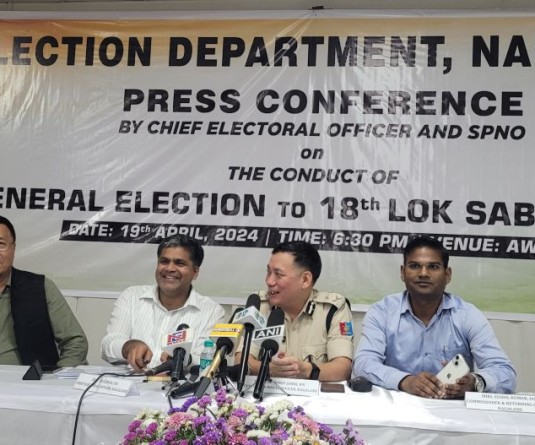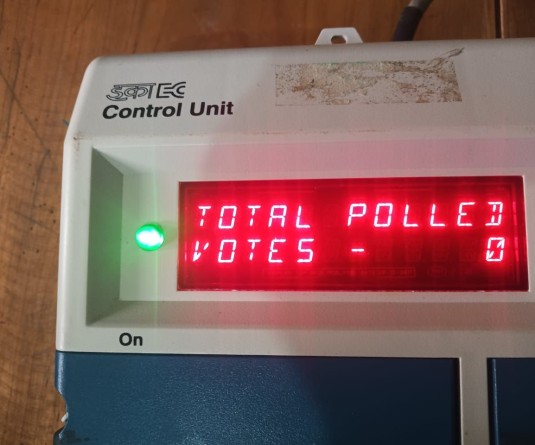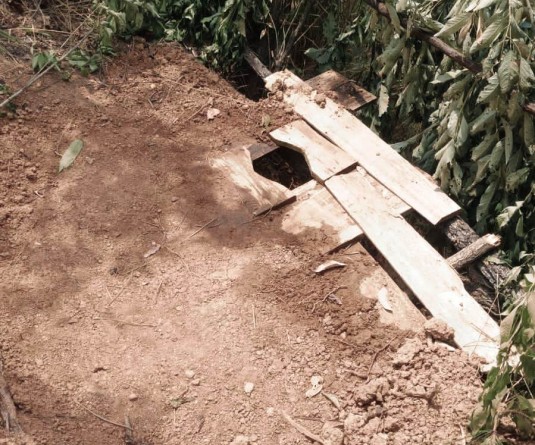
ULB polls dominate discussion at advocacy meeting on Nagaland State Diversity Policy
Morung Express News
Kohima | January 18
An advocacy meeting titled ‘Working towards ensuring Nagaland State Diversity policy and a Gender just society’ was held on January 18 at Japfii Hotel, Kohima, jointly organized by the Control Arms Foundation of India, and Manipur Women Guns Survivor Network in collaboration with English Department, Nagaland University.
The speakers for the meeting were Alemtemshi Jamir, former Nagaland Chief Secretary and member of Bezbuarah Committee; Dr. Temsula Ao, Chairperson, Nagaland State Women Commission, and Dr. Rosemary Dzuvichu, Asst. Professor, Nagaland University, Advisor to NMA. Binalakshmi Nepram, Founder of Manipur Women Guns Survivor Network moderated the meeting.
Discussing the current disagreements on the issue of the Urban Local Body elections, Alemtemshi Jamir said, this is not a fight between men and women but a “fight for resolution of certain issues.” “The present imbroglio should be looked at from that point of view. And here I don’t think it is a matter of discrimination,” the former Chief Secretary said.
He viewed that women in Nagaland have an equal footing and said there are many who have a liberal outlook towards a gender just society. “I feel that it is not really an issue of discrimination against women but it is more an issue of defining of our customs and tradition. An attempt of defining customs and traditions has become much more vital because of the fear of being swarmed by a larger society,” Jamir said. A small group such as the Nagas which became modern in the last 150 years struggling to gain its identity, has the fear of being swarmed by a globalization culture, or an Indian culture, which is at the root of clinging on to one’s customs and traditions, he reasoned.
He therefore advised that the present imbroglio could perhaps be settled through more negotiation and dialogue processes. On gender issues, Jamir affirmed that nobody was stopping women in Nagaland from entering the elections but the problem lies in the absence of free and fair elections where force, clanism, money is used, making it difficult for women to penetrate in the political arena. “It’s not a matter of women but a matter of free and fair elections and therefore most of the roots of discriminations could be at the system and perhaps it is the system that we should target,” he stated.
Jamir further stated that gender issues are largely related to economics and therefore urged the gathering to focus on economic growth of the State and the people while discussing on gender empowerment. “Equity and justice is largely related to the tangible, the material. The material, the economics, and the wealth lie at the root of justice and equity. For total empowerment of women, women have to look much more beyond the livelihood and incomes. You have to look in terms of entrepreneurship, of becoming industrialist of having more wealth in your hands,” he stated.
Dr Temsula Ao meanwhile said that unless grassroots problems are tackled with more sympathy through reaching out programs, mere passing of laws will not be enough. While progressive moves are gradually taking place in urban areas, women in the rural set ups are often deprived of their identity in the absence of a male. Citing examples in certain Naga customs on discrimination against women, Ao said, “It is not only criminal, its dehumanizing.”
She also shared activities of the Nagaland State Women Commission for Women (NSWC) where they have consulted village heads and tribal bodies especially for the inheritance rights of women.
Critiquing the electoral system in Nagaland, Ao opined that the “electoral system of government came to us too soon. Election is nothing but money. Before the bundle, your ideology flies out of the window. It’s the notes that sway your decision.” She viewed that people do not vote for the ideology but for the clan or the tribe. This, according to Ao does not encourage the growth of democratic principles and therefore Naga society is yet to imbibe and absorb the principles of democracy. She added that these frames of mind are being manifested in the current imbroglio.
Meanwhile, Rosemary Dzuvichu viewed that Naga society has a deep-rooted gender based discrimination and violence towards women.
“We are teaching all these to our younger generation. What the elders believe in, percolates down to the younger generation. The danger of Naga society is that we are not looking and building a society that is going to change. We are actually percolating a lot of discriminatory ideas to the younger generation which is very scary,” she lamented.
Clarifying that the Joint Action Committee for Women Reservation (JAWCR) had conducted a series of consultations with the tribe organizations, Dzuvichu said that the present controversy basically comes down to the “question of insecurity, of being unable to change our mindsets.” “There have been a lot of vested interests that have stepped in, and finally we are realizing that women have become the ball in the game of patriarchy. The women reservation has been used as a tool to fight electoral politics and actually fight the internal politics,” she lamented.
“Democracy is- of the people, inclusive of women, but the democracy that we Nagas talk about is actually a democracy devoid of women, it is actually a democracy devoid of the 48 percent population which exist within the state, and this is the reality of Naga democracy today,” added Dzuvichu.
Responding to allegations that the JAWCR was being aggressive, or that it has been “bought by the Ministers,” Dzuvichu retorted: “Check your candidates- in towns that they are coming in. You will find that they are not rich women. The question of whether women really need the money to contest is not the question. They are coming in because they are being backed by strong political parties.
They have been chosen as bonafide political candidates and that’s where the political party is backing them, protecting them and they are going to step into the fray and this is the reality of Naga politics.”





